Of White Whales and Witch Hunts
Ken Russell's "The Devils" surfaces at last on demand; also, "Northern Exposure" and "Cluny Brown"
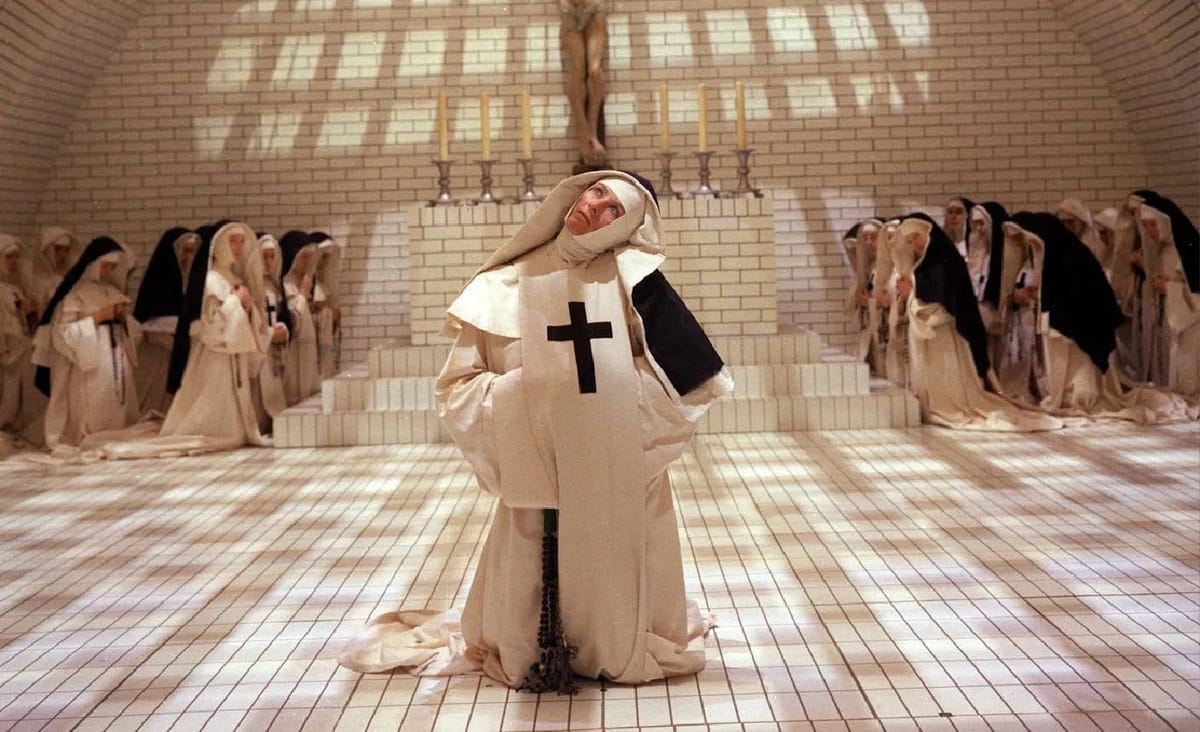
Ken Russell’s “The Devils” (1971, ⭐ ⭐ ⭐) is one of the great white whales of home video, never released on DVD in this country and available for on-demand streaming only in occasional random blurts — in 2010, it came and went on iTunes in three days. But now the movie can be found on the Criterion Channel as part of a “Directed by Ken Russell” package that includes nine other of the British bad boy’s features, from 1971’s Twiggy musical “The Boy Friend” through “Altered States” (1980) and “Gothic” (1986 – a nice double bill with the current “Poor Things,” that), the sublimely trashy “The Lair of the White Worm” (1988), and up to 1991’s “Whore.” Missing are Russell’s commercial breakthrough “Women In Love” (1969), his manic adaptation of The Who’s “Tommy” (1975), and two fascinating bombs, “Valentino” (19778) and “Crimes of Passion” (1984). But what’s there is evidence enough of a singular filmmaking talent unbounded by restraint or taste. (Well, singular except for Baz Luhrmann, I guess.)
“The Devils” generally horrified critics in 1971, and it’s regularly cited as “one of the most controversial movies ever made.” For the first hour of the film’s 108 minutes you may be scratching your head and wondering why. An account of the demonic possessions that allegedly took place among a group of nuns in the French town of Loudun in 1634, the film was scripted by Russell from an Aldous Huxley book and a John Whiting play; the monumental set, a gleaming white edifice of corruption and venality, was designed by Derek Jarman a few years prior to his own remarkable directing career. ”Devils” begins in a mordant Fellini-esque style appropriate to the era (1971, not 1634): Oliver Reed plays Father Urbain Grandier, the popular but womanizing father confessor and leader of Loudun, which has just come through the religious wars intact, and Vanessa Redgrave just about cannonballs into the role of Sister Jeanne des Anges, a hunchbacked, sexually repressed Mother Superior whose lust for Grandier leads her to accuse him of possessing her while being possessed by Satan. (Glenda Jackson turned the role down, having had enough of “neurotic sex starved parts.")
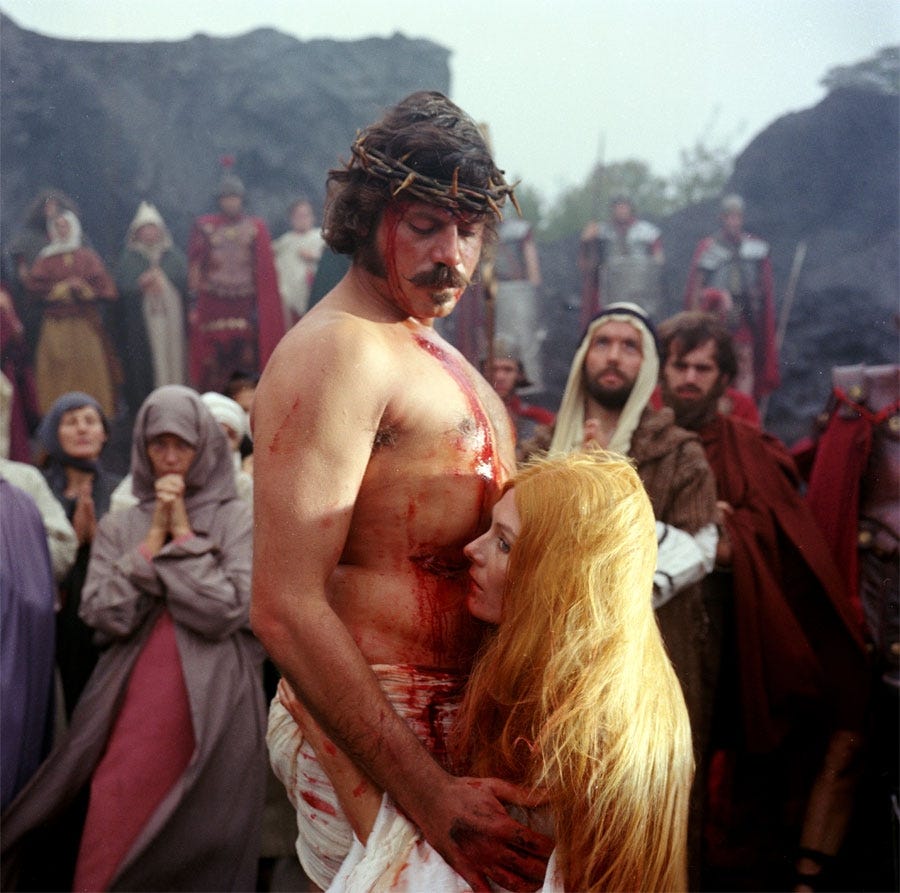
It’s saying something that Reed’s character is the most rational and sympathetic person in the movie: Grandier is a happy cynic and committed wencher who is transfigured by love (for Gemma Jones’ aristocratic Madeleine) into a martyr of pre-Enlightenment reason, and by the fiery end of “The Devils” he has become a touching if gravely abused figure. But I’m getting ahead of myself: Around the time Redgrave’s hotted-up Sister Jeanne lays out her accusations – good news to a government cabal that wants to be rid of the priest – Russell cranks up the medieval sacrilege machine to 11 and lets rip. Not only does the mother abbess get possessed but so do all the convent’s sisters, and suddenly we’re in a rush-hour mob of shredded wimples, shorn heads, and naked nuns howling to the moon. A crazy-eyed Witchfinder General appears in the person of Father Barre, played by Michael Gothard as an angry radical leftist who’s read too much Mao. The movie teeters on the edge of delirium, the screen grown crowded with apostates and true believers and users and abusers and still more naked nuns, with a score by the respected Peter Maxwell Davies oboeing its way through the proceedings. It’s as though Russell had handed the directorial reins to Hieronymus Bosch; I kept expecting one of those little mutant bird dudes to wander along the bottom of the frame. By the end we’ve witnessed masturbatory stigmata, divine enemas, group orgasms, tortured tongues and limbs, a burning at the stake, and Jarman’s sets going kerplooey as the forces of Cardinal Richelieu (Christopher Logue) move in for the municipal kill. This is followed by one of the more heroically bleak final shots of the movie’s era – the yellow brick road of civilization turned to ash and corpses. It’s all too self-consciously too much, a revenger’s tragedy staged in a mosh pit and an experience whose excesses push it, then and now, to the precipice of camp.
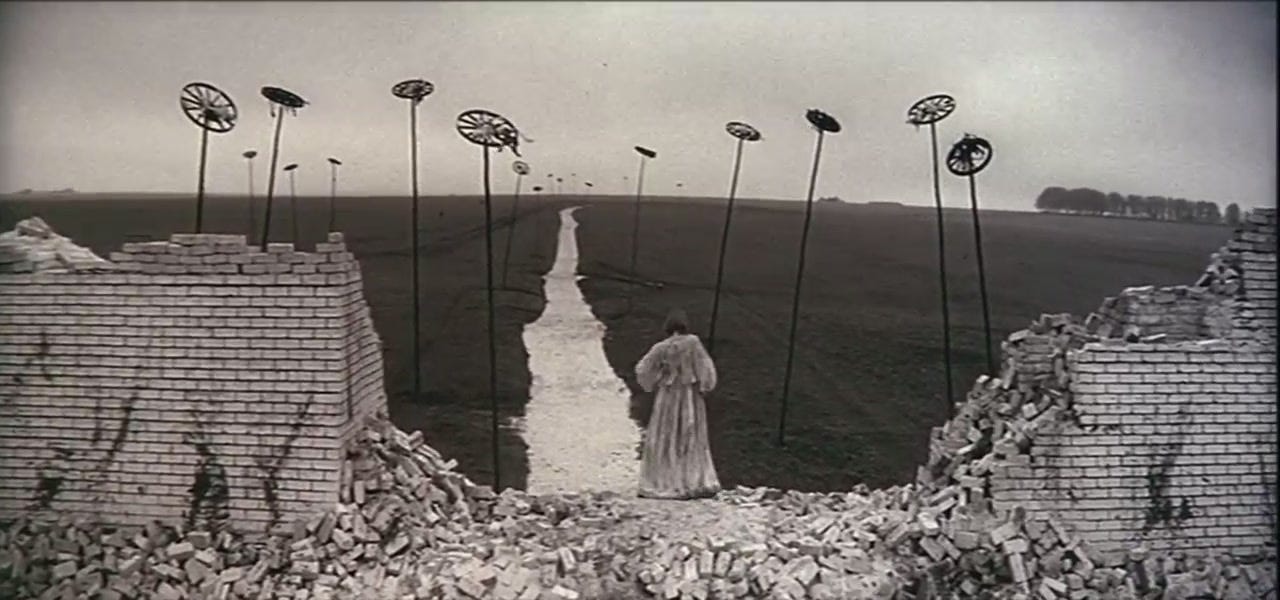
And yet… And yet. “The Devils” deserves a look not just because you may not get another chance for who knows how long but because, damn it, the movie makes more sense in 2024 than it did in 1971. The Wikipedia page for the film cites a passage by film historian Tim Lucas in the out-of-print film ‘zine Video Watchdog that describes “The Devils” as “an indictment of political agendas which have been with us throughout the course of human history. When government is at its most immoral, history shows that it tends to ally itself with the Church, and to deflect public attention from its own corruption by demonizing convenient scapegoats—artists, philosophers, progressives . . . in a word, liberals."
Sound familiar? For all its extracurricular chaos – which, if you look closely, you’ll notice is rigorously controlled – the movie’s a pitiless condemnation of the forces of repression and control, of the way power seeks more power, of the secret handshakes between church and state, and of the precariousness of the free-thinking individualist. “The Devils” isn’t just a mad film, it’s an angry one. And with good reason, then and now.
(Note: The version of “The Devils” showing on the Criterion Channel is the 108-minute US cut released theatrically with an X rating in 1971; that version lopped off three minutes from the British theatrical cut, which had already been through several rounds with the censor’s scissors. If you want the full 117-minute director’s cut, including the infamous “rape of Christ” scene in which the nuns sexually assault a life-sized crucifix while a priest looks on and masturbates, well, you’ll just have to travel to the UK for the DVD.)
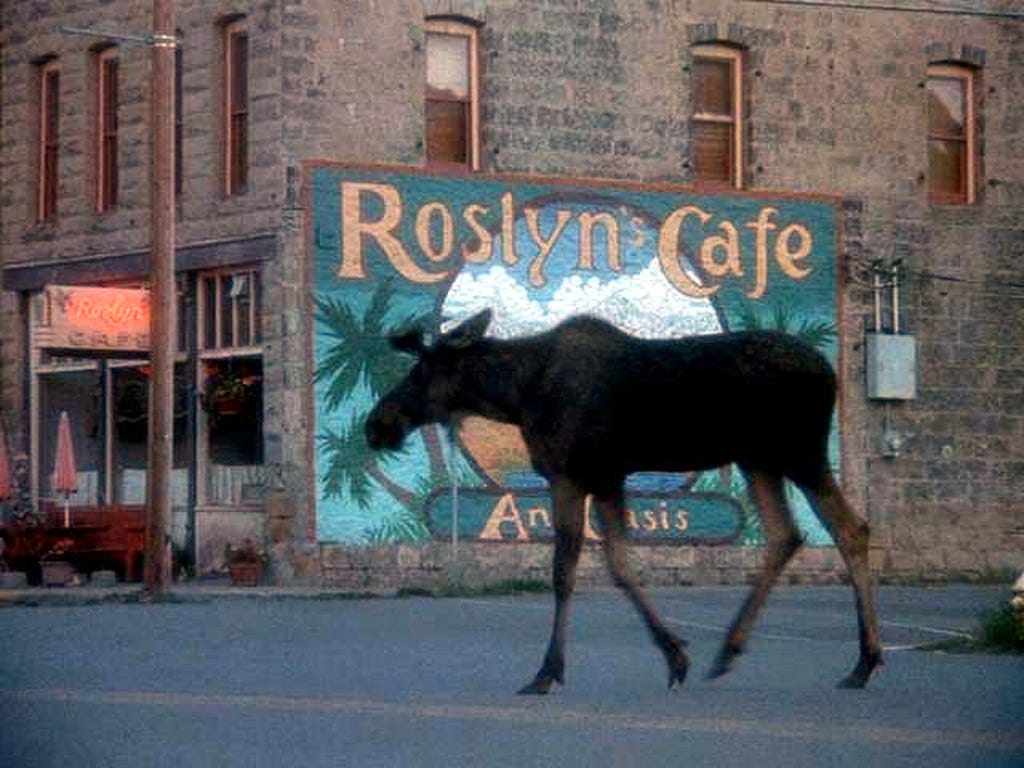
Or perhaps you want something a little more … whimsical. I’m informed by Watch List regular Mindy that one of the great white whales of network TV has finally become available for streaming: “Northern Exposure,” the much-loved 1990-1995 CBS comedy-drama set among the eccentric citizens of Cicely, Alaska, has been long been AWOL on demand, but all six seasons can now be had on Amazon Prime Video. For my wife and me, this series was the last gasp of Must See TV before babies started arriving in 1995 and we began watching shows, if at all, through two bleary, distracted sets of eyeballs. In other words, a farewell to youth. I look forward to reacquainting myself with obnoxious Dr. Joel Fleischman (Rob Morrow), adorable bush pilot Maggie O’Connell (Janine Turner), proto-coffeehouse hipster/DJ Chris Stevens (John Corbett), and all the rest of the Cicelyans at my convenience.
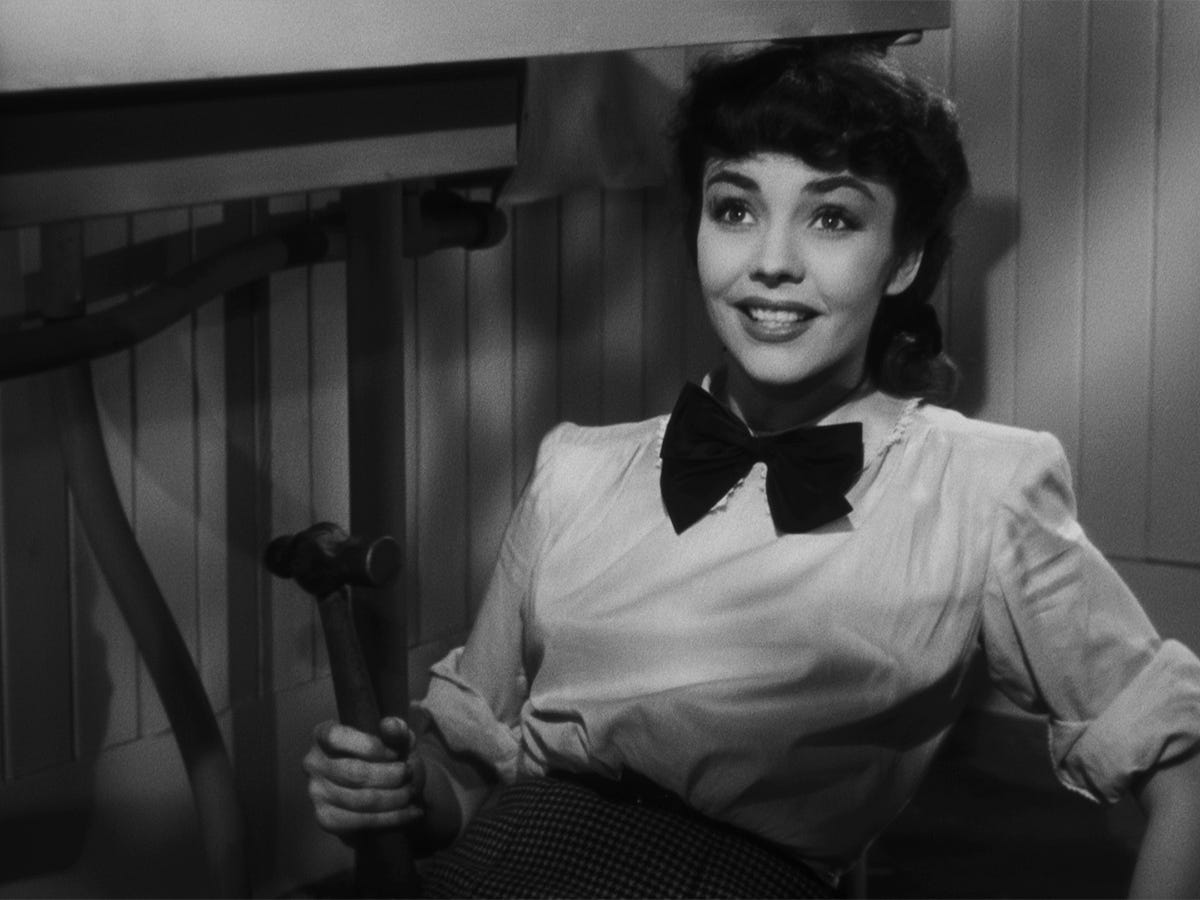
Final white whale of the day, for those who get Turner Classics and can avail themselves of the channel’s on-demand “WatchTCM” service: “Cluny Brown” (1946, ⭐ ⭐ ⭐ 1/2), the final film to be completed by the great Ernst Lubitsch and one of his oddest, most enjoyable romantic comedies. It’s the love story of a parlor maid and lady plumber (Jennifer Jones, above, delightful in a rare comedy role) who’s courted by an anti-Nazi refugee (Charles Boyer) while she’s working and he’s staying at the estate of a stuffy British family. As ever, Lubitsch observes the farce of social class with a gentle but ruthless sting, and “Cluny Brown” doesn’t feel like any other movie of its era – a throwback, perhaps to the director’s 1930s masterpieces, or a hint at what might have come if a heart attack hadn’t felled him a year later at 55. For now, WatchTCM is the only way to stream “Cluny Brown,” but the DVD can be had as well. However you see it, it’s a joy. Here are two of my favorite movie critic-historian-cineastes, Molly Haskell and Farren Smith Nehme, talking about the film.
Comments? Bring them on.
If you enjoyed this edition of Ty Burr’s Watch List, feel free to pass it along to others.
If you’re not a paying subscriber and would like to sign up for additional postings and to join the discussions — or just help underwrite this enterprise, for which the author would be eternally grateful — here’s how.
A regular feature for paid Watch List subscribers: I suggest one reasonably under-the-radar movie from the recent or distant past, and you do what you want with that information.You can give a paid Watch List gift subscription to your movie-mad friends —
Or refer friends to the Watch List and get credit for new subscribers. When you use the referral link below, or the “Share” button on any post, you'll:
- Get a 1 month comp for 3 referrals
- Get a 3 month comp for 5 referrals
- Get a 6 month comp for 25 referrals. Simply send the link in a text, email, or share it on social media with friends.
There’s a leaderboard where you can track your shares. To learn more, check out Substack’s FAQ.





